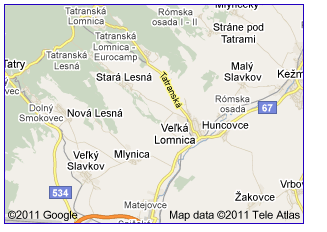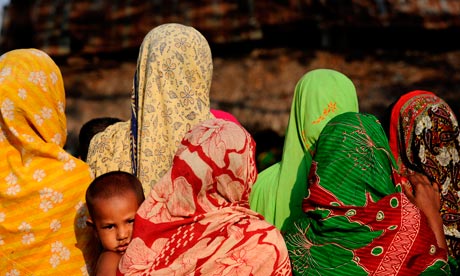 Although most news on slum tourism still focuses on developing countries, slum tourism is becoming more and more visible in Western Europe and the USA too, as do the ethical discussions surrounding such tourism. A recent example of this is so called tourism to the area of “Tenderloin” in San Francisco. Proponents who want to develop this kind of tourism are backed by the city’s mayor who wants to use tourism to promote “a positive identity for the Tenderloin” by posting plaques on buildings to “create great visual interest for those walking down the community’s street”.
Although most news on slum tourism still focuses on developing countries, slum tourism is becoming more and more visible in Western Europe and the USA too, as do the ethical discussions surrounding such tourism. A recent example of this is so called tourism to the area of “Tenderloin” in San Francisco. Proponents who want to develop this kind of tourism are backed by the city’s mayor who wants to use tourism to promote “a positive identity for the Tenderloin” by posting plaques on buildings to “create great visual interest for those walking down the community’s street”.
I found two points particularly interesting about this article. Firstly it mentions it may be easier to encourage local San Franciscans to visit the area, rather than foreign tourists, given that there are so many things to do in the city. If it will be mainly local people that visit the area, tourism here will be very different from for example township tourism or favela tourism that are mainly visited by foreign visitors. It would be interesting to see if these areas will be represented in different ways because of this, particularly as domestic slum tourism receives very little popular and academic attention.
Another, slightly related point that intrigued me has been the reception of the idea of tourism. One blogger was fairly moderate in his comments and discussed how the area may simply not be suitable for tourism and media-hungry public figures use it for some free publicity. I do not know the area, but this could very well be the case. Others have been less moderate and show the underlying tensions that are so significant with slum tourism. One blogger decided to criticise the idea of tourism to Tenderloin by making fun of it, stereotyping the neighborhood and the people who live there. It would seem articles like this do more to misrepresent and stigmatise impoverished neighborhoods than tourism could ever do. As an author from the Tenderloin area notes, the article is full of banal and overblown generalizations and simply bad taste. Interestingly (s)he then turns to discuss tourism to the Tenderloin and argues that while seeming decent, tourism may actually to turn out very negative:
“Tours of poverty (rephrased as “grittiness” in some attempt at being politically correct) are scummy. There’s a reason that aspects of them are big in South Africa and Germany as it seems that in places where white supremacists were/are big, they love that shit. It’s like going to a human zoo for them. This of course fits in line with how they view anyone not white. Rather shocking that it’d be tried in San Francisco”.

Here the prejudice and stereotype is reserved for those that are interested and take part in such tours. To be fair to this latter blogger in another post (s)he writes about how tourists visit Tenderloin in the vehicle that can be seen on the picture on the right. Even though the tour apparently also visited other parts of the city, using a vehicle like this to visit an area like Tenderloin is seriously distasteful and makes a negative perspective on slum tourism more understandable.
The example of tourism to this neighborhood and the strong reactions it provokes show the inherent difficulty involved with slum tourism. The idea of supporting tourism to an impoverished area and posting plaques on buildings seems a useful way of promoting awareness particularly among local people and potentially bring some additional money to poorer communities. However, it is very easy for slum tourism to be vulgarized and this makes it likely to be dismissed out of hand. On the other hand, hiding impoverished areas does not make them go away and provides visitors with only a partial picture of a place.
Again, it seems that one cannot really discuss slum tourism in terms of good and bad. It can be both, depending on the way areas are represented and the extent to which it is done with a respectful attitude to the community.
 development of small tourism businesses has been seen by policy-makers as a valuable means of alleviating poverty in South African townships. This perspective has also been endorsed by several “responsible” tourism businesses and academics.
development of small tourism businesses has been seen by policy-makers as a valuable means of alleviating poverty in South African townships. This perspective has also been endorsed by several “responsible” tourism businesses and academics.
 recent article by Fabian Frenzel and Ko Koens titled “Slum Tourism: Developments in a Young Field of Interdisciplinary Tourism Research” can now be
recent article by Fabian Frenzel and Ko Koens titled “Slum Tourism: Developments in a Young Field of Interdisciplinary Tourism Research” can now be  An interesting radio broadcast on slum tourism was recently aired by the BBCWorld Service. Its
An interesting radio broadcast on slum tourism was recently aired by the BBCWorld Service. Its 



 In an
In an